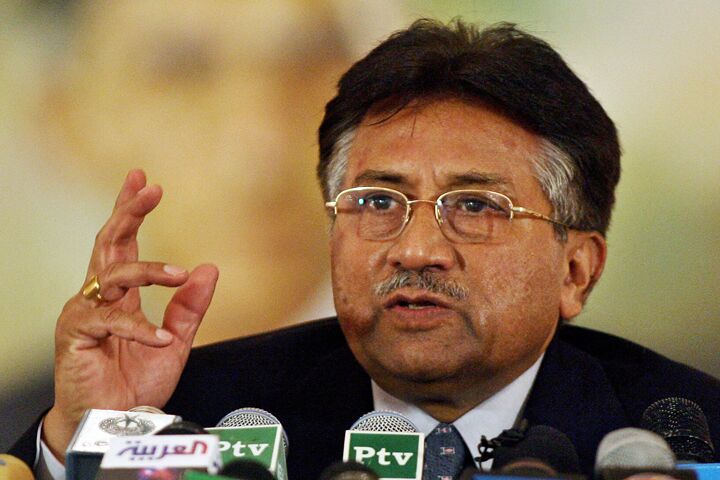
U.S. Worried Over Pakistan Nukes
The volatile state of affairs in Pakistani politics has U.S. officials concerned about what will become of Islamabad’s nuclear weapons. Any of several outcomes of the government’s current instability could put one or more warheads in anti-Western Islamist hands.
In the wake of President Pervez Musharraf’s weakened hold on Pakistan’s government in recent months and his November 3 declaration of emergency rule there, U.S. intelligence agencies are increasing their focus on Pakistan’s nuclear weapons program, according to a Los Angeles Timesreport. “That was one of the things people immediately started asking about,” an anonymous senior U.S. intelligence official said. “How do we game this out? How might it happen?” (November 8).
U.S. intelligence has directed analysts to reexamine the possibility that the rising instability could result in nuclear expertise, technology or actual fissile material being lost.
Intelligence agencies are not discounting the possibility of Islamist terrorists taking advantage of the turmoil in Islamabad and launching an all-out assault on one of Pakistan’s nuclear weapons installations, of which there are several. Intelligence estimates say that jihadists with enough nuclear material would need to add only a limited amount of know-how to produce a bomb.
The nuclear weapons program is administered by the Strategic Plans Division, a Musharraf invention that has tightened security over the warheads. The division also secures the many sites throughout Pakistan that produce weapons-grade nuclear material. Because Musharraf’s measures appear to have the arsenal locked down, a successful attack and seizure of usable nuclear materials lies at the edge of the realm of possibility. However, with strong, long-standing Taliban and Islamist sympathies present throughout the populace, including within the military, intelligence service and government, it is not outside it. Washington is keeping an eye on the military in this respect.
Timereports that even if the military and Musharraf retain control, Washington cutting off cooperation with Pakistani military officers in the ’90s has produced a generation of officers who are much more likely to be sympathetic toward mujahideen “holy war” fighters than the United States (November 6).
Washington fears that the turmoil in Islamabad could provide the opportunity for such individual military and security officials and/or scientists to leak materials or secrets—a likely scenario considering Pakistan’s track record.
In 2001, two Pakistani nuclear scientists met with Osama bin Laden in Afghanistan to advise him on how to make a bomb. In 2004, Abdul Qadeer Khan, the “father” of Islamabad’s nuclear bomb and a national hero, admitted that he had sold his nuclear expertise and technology to Iran, North Korea, Libya and other worrisome customers. Khan’s actions, wrote Stratfor at the time, were facilitated by the government, and as such were a “matter of state policy” (Feb. 6, 2004). In 2006, Pakistan’s Atomic Energy Agency ran an ad campaign intended to educate the public on how to recognize nuclear materials and symbols. The ads were pulled when fears arose that radioactive materials had been stolen.
Pakistan’s explosive political situation and its deep-running sympathies for jihadists could soon arm—and might have already armed—al Qaeda, the Taliban, or other terrorists with nuclear weapons. Conceivably, the next suicide bombing could end with a mushroom cloud. For more on this subject, read “The Brink of the Unthinkable.”
